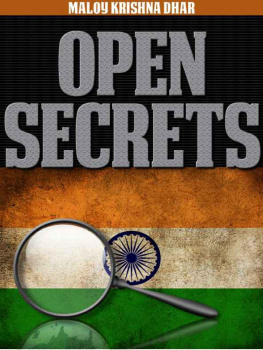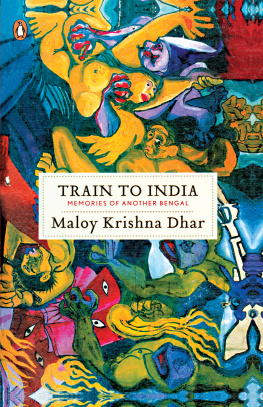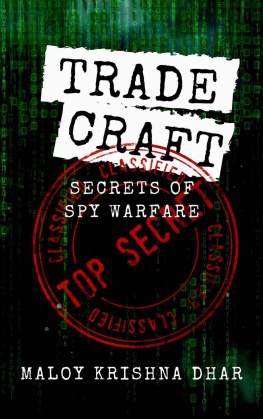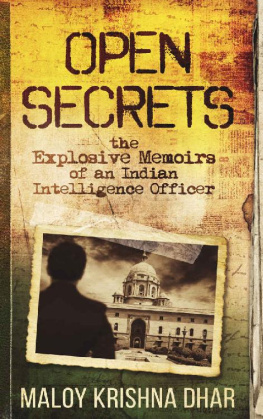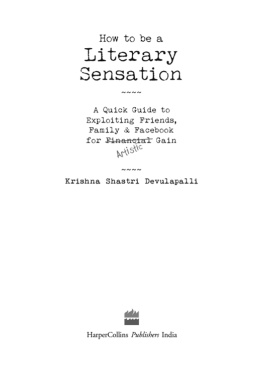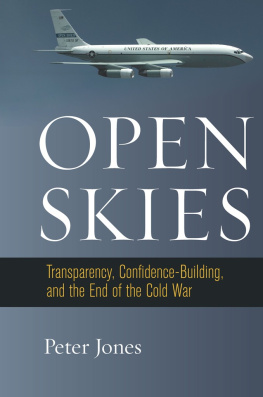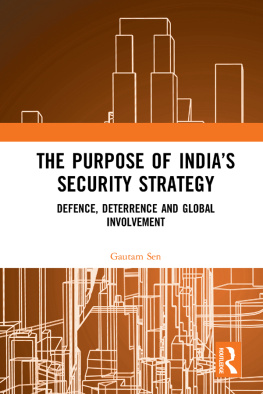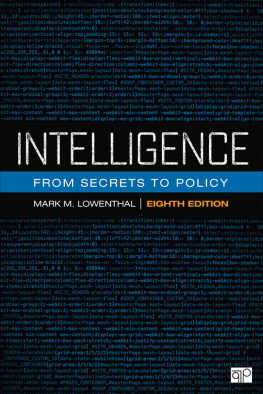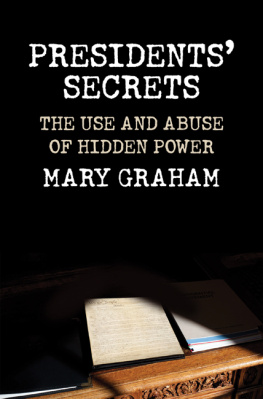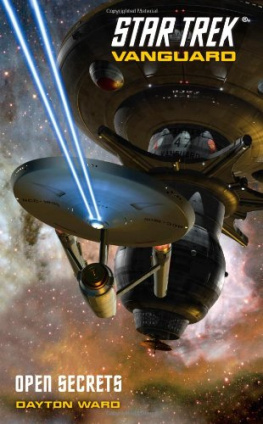A NOTE TO READERS ABOUT MALOY KRISHNA DHAR
Downloaded from GAPPAA.ORG
On the 19th of May, 2012 at 5:10PM, Maloy Krishna Dhar, bestselling author, widely regarded strategic expert and commentator, highly decorated police and intelligence officer, and yes, my father, passed away after a month long battle that began with a stroke and was compounded by renal and multi-organ failure. I was with him through all those days and at the end. It is perhaps the way of the world that we spread our wings and go far from our roots, but the one comfort I have is that I was able to be with him, to talk to him, to remind him of all he has done for us, and to thank him for all he has taught me. Most of all, I was able to tell him what I had never told himof just how remarkable his journey in life has been, and of just how proud I feel to be his son.
Many people take such occasions to mourn and cry. I feel the pain, having now lost both my parents, but Maloy Krishna Dhar is not a man to be mourned and cried over. His life is one to be celebrated and learned from. Dying is a biological inevitability, but what matters is what one does with the time one is allotted. On that count, my father led a life so full and so eventful that his life itself could make for a bestselling book like the ones he authored.
He began his life on July 13, 1939 in Mymensingh, now in Bangladesh, and had very happy memories of his childhood. Those were however soon clouded when his father passes away when he was but a child, and the Partition of the Indian subcontinent rent apart the world he knew. In his book Train to India , he recounts how he and his mother had come to India on a train amidst the communal carnage, him carrying a small pocketknife in his attempt to protect his mother from the marauding mobs. He saw the worst of man, saw people being killed in front of him at such a tender age, and arrived in India without much to his name. Many people in his position could have, and indeed did, settle for what they assumed to be their lotharbouring hatred from the bloodshed they saw, and settling for whatever meager opportunities came their way. That was not the path Maloy chose. He escaped his harsh surroundings, not physically at first, but through his quest for knowledge, realizing that an education was the way he could create a better life for himself and his mother. His love for learning and letters was apparent in what he chose to learnhe studied Comparative Literature in College, and would later tell me that reading classics from other lands opened his mind and inspired him to raise his own game. He started his working life as a journalist, and could certainly have had a comfortable life compared to his childhood, but once again, Maloy made the leap that very few others in his position would have. He appeared for the elite Indian Civil Services Examination and was selected into the Indian Police Service in 1964.
His early years, spent in Naxal infested areas in East India (an issue we grapple with today, and on which he had very insightful views) brought out many aspects of his remarkable character. One, he was absolutely fearless. Many people try and judge what position or point of view will bring them advantage. Maloy had a simple inner compass of right and wrong, and would be guided by it, no matter the consequences. My late maternal grandfather, himself a senior Police officer, would tell me stories of how he saw the early career of his to be son-in-law with a mixture of dread and undisguised admiration. Maloy was the kind of man who once got into a jeep with a driver, and went after a man-eating tiger that had come loose in the plantations. He once cornered and shot a dreaded outlaw whom other officers would not touch because of his political connections. When asked by others whether he realized what he had done, he said, `I shot the bastard. That is the kind of man Maloy was. Second, for all his hard and uncompromising exterior, he was a man of deep perception. Despite his mandate being to stamp out Naxalites, he took the time to understand their root causes and understood and empathized with why many of them chose the route they did.
His next stage of his career took him into an arena where he was to excel for almost 30 years. He was appointed to the Intelligence Bureau, the Indian equivalent of the American FBI, though with some of the external mandates the CIA has. His early years there, with a newly married wife and young kids were in the troubled North-East of India, including Nagaland, where I was born. That region at that time was seeing a violent insurgency against Indian rule, and Maloy faced the challenge as he did every other challenge in his lifewith no fear, and with the greatest of empathy. That combination made him life-long friends among those who could have been enemies. He did not talk much about his work, but growing up in Delhi, I would meet visitors from Nagaland and Manipur who would tell me that Maloy was the first and perhaps only government officer they trusted. He would always play it straight, never try and manipulate them and what endeared him to them was the fact that he was utterly without fear. I remember a story of how he once supposedly went into a village known to harbor insurgents, alone and with only his personal sidearm, and drank the local brew with the headman, trying to understand why they were supporting them, and how he could help act as a bridge to end the violence.
As I was growing up, my fathers work often played at the center stage of some of the turbulent times in Indias history, though often I was too young at that time to realize what was happening. He handled the terrorism desk for years, handling the Khalistan separatist movement, and later the Pakistan sponsored terror in Kashmir and beyond. Again, it is amazing the respect he garnered through his approach to work and life. As he lay critically ill, one of the calls I got was from a man who was once a Khalistani separatist and later joined the mainstream political process. He told me about how many people in Punjab would miss him terribly, because in the midst of a terrible crisis with excesses committed on both sides, he was a rare officer. A man who was willing to listen and empathize without shooting first, yet also a man without fear. One story of my fathers from this period, which he recounted later in one of his books, was of the terror siege at the Golden Temple that came to known as Operation Black Thunder. He pleaded to not deploy crushing force that would have led to high collateral damage but instead had trusted men on the inside whom he wanted to supply. As a senior IPS officer, he could have delegated the terribly dangerous task, but he dressed up as a fruit seller, with a basket of fruit on his head concealing weapons and walked into a complex with hundreds of heavily armed terrorists to get the weapons to his men.
The twilight of his career was mirrored by personal tragedy as my mother, Sunanda, was diagnosed with Cancer and passed away in 2001 after a five-year battle. Maloy stood by her, shared her pain and her triumphs. He had once told me that my mother had been his first and only love. He perhaps never really recovered from her loss and today; my one consolation is that the two of them are reunited. For a man whom many saw as a hard-nosed officer, he kept every single letter my mother wrote to him and left them for me in a large bundle, with instructions to burn with him at his cremation. He loved as he lived, fully and sparing nothing of himself.

